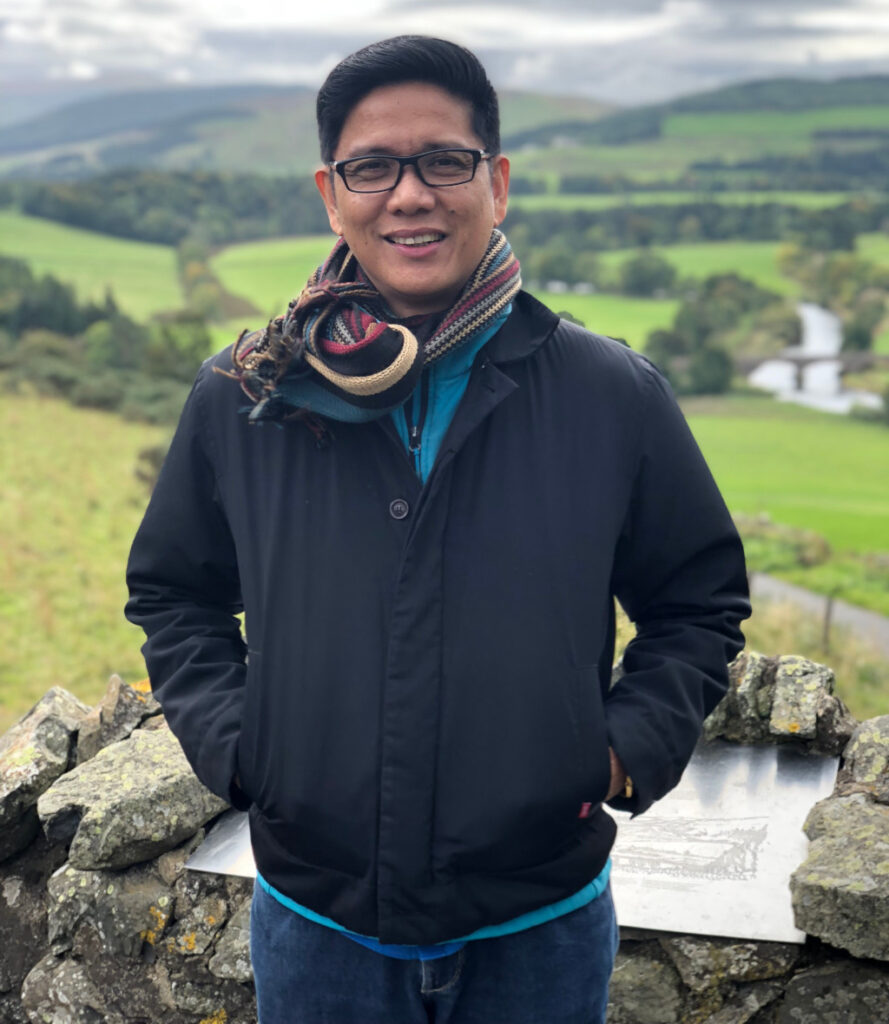My name is Rico Villanueva, I come from the Philippines, a country in the western Pacific Ocean which is made up of more than 7,000 islands. My nation was colonised by the Spanish for more than 300 years. It is why I have a Spanish name, and why over 85% of the population are Roman Catholic. But identifying as a Christian is not the same as accepting Jesus in your heart.
On the outside, many Filipinos behave like Catholics: they go to Mass and Confession, they count their Rosary Beads and they pray to Mary, but on the inside, some still do not know Jesus. Termed ‘split-level Christianity’ by Jesuit priest Jaime Bulatao, this co-existence of conflicting thought-and-behaviour systems within the same person is an example to us of what can happen when you bring the cross in one hand and a sword in the other.
‘One with those who suffer’
Though shallow faith is widespread, thankfully many Filipinos remain open to Christ. He is our karamay, a Filipino word meaning ‘one with those who suffer’. It was why I was drawn to Him as a teenager, the image of Jesus on the cross as a suffering servant.

But despite our intimate cultural and historical understanding of suffering, stigma towards those suffering from mental illnesses remains rampant. Even today, people will think that there is something wrong with you if you admit to feeling depressed. And so it was not until years later that I finally realised why I had been drawn to Jesus.
Depression can come in many forms. I noticed that there were times, especially during the Christmas season when I wished that I hadn’t been born. I suffered from long bouts of low mood. Whatever I did and wherever I went, it felt as if darkness were hanging over me. To me, Jesus was a light. Somehow, He believed in me far more than I was able to believe in myself.
Help through a difficult period
By this point, I was teaching in a seminary, and like a moth to a flame, I was keen to undertake further study. I was introduced to Langham Partnership (Langham) – a UK charity which aims to deepen Christians’ faith by equipping, training and resourcing indigenous leaders around the world – and went to the UK as part of their Langham Scholars programme to complete my PhD on the biblical Psalms of lament.
The adjustments, stress and difficulties of living in a foreign land with my family eventually took their toll, and I struggled with a particularly strong bout of depression. But the support from my wife and Langham, along with my research on the Psalms of lament, helped me get through this period.
One of the key messages of the lamenting Psalms, which make up over a third of the book of Psalms, is that it is okay not to be okay. I eventually realized that I did not have to be perfect, healed or even feel ‘okay’ to come to God. God accepts us as we are, but I had to learn to accept myself, which I found incredibly difficult as a Filipino man.

After I graduated, I was invited to be part of the Scholar Care Coordinators for current Langham scholars in Asia. As I had benefited a lot from my own pastoral care coordinator, I jumped at the opportunity to give something back. A few years later, I was invited to become Langham Literature’s Regional Commissioning Editor for Asia, encouraging and supporting Asian writers to develop theology books in their own languages to help deepen the faith of disciples in their nations.
Long-term impact
We live in a fast-paced world, but depth cannot be rushed. It took Langham three years to support me in my PhD, and another three years for continued training. It took me far longer to accept and overcome my depression. The results cannot be measured in numbers alone, but by the lives that are continuing to be transformed through our teaching, writing and preaching.
Are you looking for a way to change lives and impact communities with the gospel? Help by donating to the work of Langham and subscribe to our newsletter for monthly updates. Thank you.
This article was written by Ngaire Buckley, Langham Partnership Australia.
